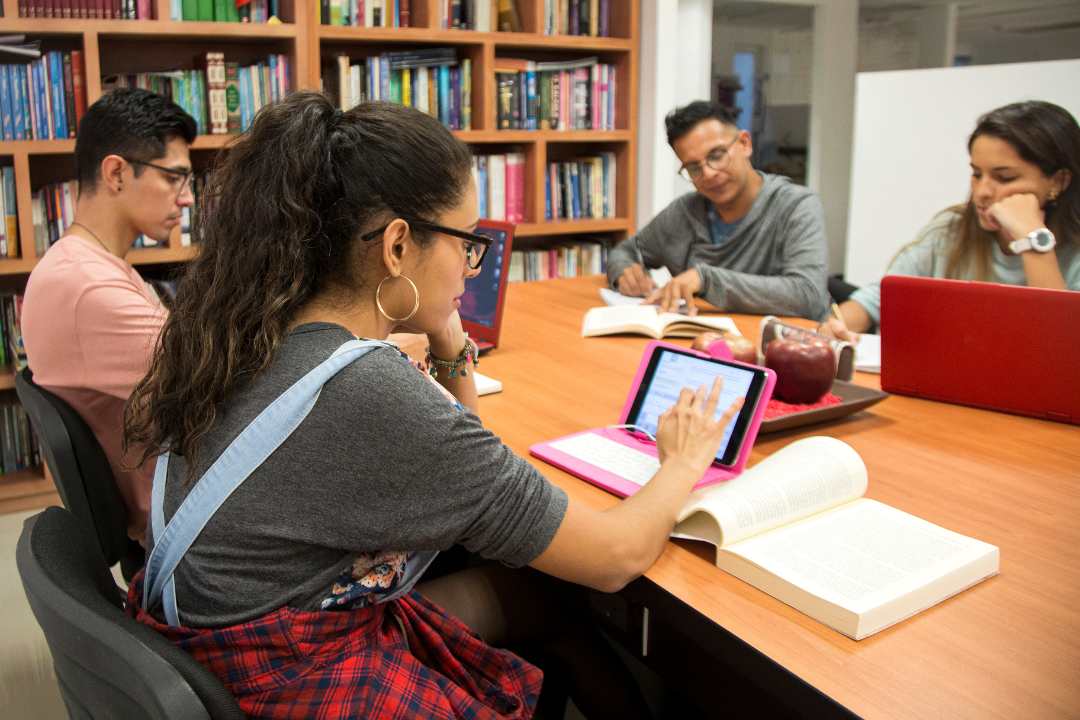Keys to the digital world: libraries and community centres’ critical roles in digital access

The final report provides a range of case studies and recommendations on opportunities to raise awareness of the services provided by councils, community centres and libraries to provide digital services to its citizens. The report draws on SACOSS knowledge of digital inequity and strong stakeholder networks.
“When I buy a new phone, they give you no instructions. Library helps with phone setup.”
– Age Pensioner, Peterborough
Project summary
The research conducted in this project identified the important role regional libraries and community centres play in supporting their communities with digital inclusion.
The project observed that the loss of essential face-to-face public and private services has increased stress for community members. This has resulted in adding to the diverse digital inclusion workloads being carried by staff and volunteers in regional libraries and community centres.
It identified a need for additional resourcing to strengthen digital inclusion in regional SA. This would allow libraries and community centres to expand their current offerings and engage digitally excluded community members who are currently not accessing existing supports.
The final report recommended key actions for the State Government, Local Government Association and local councils to continue to provide digital skills education, outreach and mobile services programs for those disadvantaged by lack of access to data and suitable devices
The project has helped develop a network of regional libraries, community centres, local governments, and other organisations with a vested interest in tackling SA's regional digital divide.
“He never makes you feel like a dill, and he doesn’t do it for you, he helps you learn something for yourself”
– Age Pensioner, Mount Gambier, commenting on the instructor for the digital skills classes run by their library.
Benefits
This project has produced several benefits that will be sustained beyond the life of the project.
- a list of recommendations for stakeholders to advocate to State Government to increase funding of these digital inclusion programmes (this is backed by evidence-based research, including qualitative data from community members, and library and community centre staff)
- recommendations for the LGA and the local government sector to bolster collaboration between larger and smaller regional councils, and to support local councils to understand the digital inclusion challenges and successes of their libraries and community centres
- resources to support advocating for improving or maintaining the existing and vital regional digital inclusion programmes
- a new network of regional libraries, community centres, local councils, and other stakeholders, that are able to share resources, advice and feedback on advocacy, and digital inclusion policy development (SACOSS will continue to refer to in it’s own-advocacy work)
- a network of community members who have benefited from regional digital inclusion services, and community members who are able to share their experiences about battling digital disadvantage.
Project approach
The project used a participatory model methodology for its research. This included interviews with key library and community centre staff and users, and external stakeholders to capture their thoughts about existing services and potential future service and program offerings.
The findings from the desktop reviews and interviews were presented in a final report that included recommendations for additional services and programs, contextualised within the impact of barriers to participating online for people experiencing poverty and disadvantage.
It emphasized the necessity for governments to fund appropriate interventions. Key recommendations were costed so that local government and other stakeholders can present a compelling case to decision-makers for increased resourcing for libraries and community centres.
The project also delivered a public-facing communications collateral designed to strengthen community awareness of the services and programs offered by libraries and community centres to help people facing barriers to participating online.
Project snapshot
Key dates
- Funding approved - Complete 01 Nov 2022
- Stakeholder engagement - Complete 02 Jan 2023
- Collation and presentation of key findings -Complete 05 Jun 2023
- Report development - Complete 04 Sep 2023
- Project completion - Complete 02 Oct 2023
